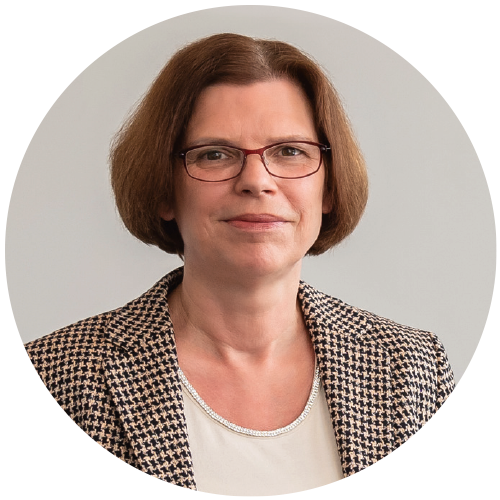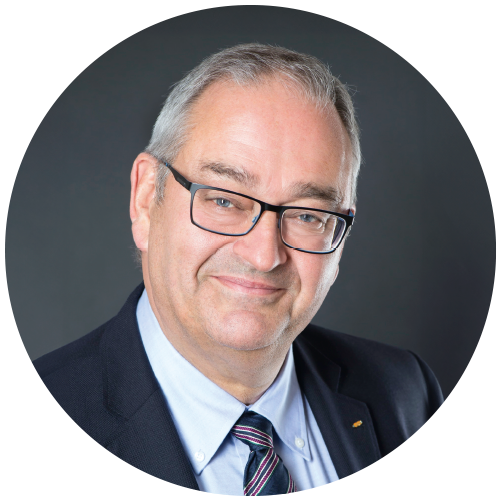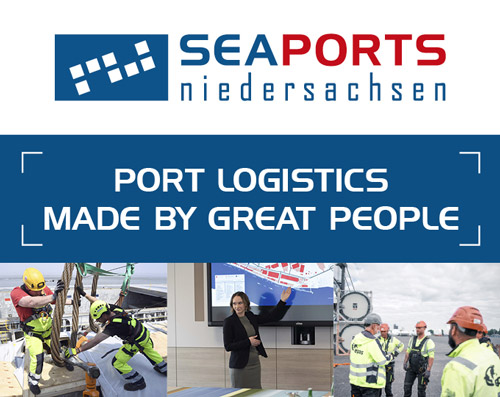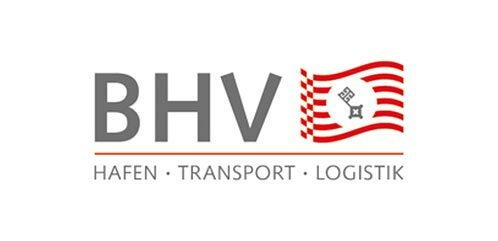How well do Brussels, Berlin and Germany’s federal states work together on climate and environmental protection? Kristina Vogt, Bremen’s Senator for Economic Affairs, Ports and Transformation, and Mathias Krage, President of the Lower Saxony Transport Association, give their views on what is going well and where they see room for improvement.

“Europe must not lose sight of global competitiveness.”
Kristina Vogt. Born in Münster and a member of the
Die Linke political party since 2008 Vogt was Senator for Economic Affairs, Labour and Europe from 2019-2023 and has been Bremen’s Senator for Economics, Ports and Transformation since July 2023.
KRISTINA VOGT: Cooperation between the levels of government remains difficult, particularly due to the disagreements within our coalition government. This is also having an impact in Brussels, where Germany is abstaining in the Council of Ministers in cases where we should be taking clear positions. One example of this is the debates surrounding the “German vote”. Questions regarding the financing of ports also remain unanswered. In approving EU regulations, our government has recently caused extra burdens for the federal states, such as regarding shoreside power, but without continuing the related funding programmes. There has been isolated progress, though, like the Cuxhaven port expansion and the planned guarantee programme for constructing the converter.
MATHIAS KRAGE: At national level, there’s a growing awareness of the importance of logistics. We appreciate the efforts, particularly concerning infrastructure modernisation. But there’s room for improvement, including in the coordination between levels of government. Different regulatory approaches in the individual states make it hard to implement measures consistently, like where port connections and infrastructure projects are concerned. This often leads to delays, which can affect the logistics industry’s competitiveness.
LOGISTICS PILOT: Climate protection regulations are increasing greatly, particularly for the maritime industry and logistics. How do you rate this?
KRAGE: We generally support climate protection, including for the maritime industry and logistics, as we recognise the industry’s responsibility to reduce emissions. The transition to more sustainable business models and technologies is necessary to remain competitive in the long term and to achieve the climate targets. At the same time, though, this must be done realistically and practically. Extensive investments are needed to make the transition to lower-emission technologies, especially for small and medium-sized companies. These companies need enough time to adapt and prepare targeted support measures to ensure that the German logistics industry remains competitive at a global level.
VOGT: The maritime industry is playing its part in decarbonisation and recognises the need for climate protection measures. However, it’s important that Europe does not lose sight of global competitiveness. There’s a risk that over-regulated industries will migrate to Asian and North American markets, which would ultimately not serve the interests of climate protection either.
VOGT: Germany has a strong maritime industry and should use its pioneering role in the EU to promote uniform environmental standards and encourage innovation in the field of environmentally friendly technologies. This includes, in particular, the promotion of research and the introduction of sustainable technologies that not only strengthen competitiveness but also contribute to climate change.
KRAGE: Germany must take a leading role within the EU when it comes to promoting environmentally friendly practices in the maritime industry and logistics. As one of the largest in Europe, the logistics industry plays a major role in organising and implementing the international flow of goods. In this respect, Germany not only has the duty but also the potential to be a pioneer in the development and implementation of sustainable technologies and practices.
LOGISTICS PILOT: Where is improvement in environmental policy interaction between the national and state governments needed most?
KRAGE: This lies in harmonising measures and implementing projects quickly. For the logistics industry, especially in the maritime sector, uniform legislation and clear regulations are essential for long-term planning. Currently, different priorities and approaches in the individual states are leading to delays in implementing major infrastructure projects that are crucial for the sustainability of the industry. Closer cooperation and a clear framework are needed to create uniform standards nationwide, particularly in port logistics and in the promotion of zero-emission technologies.
VOGT: There is a lack of continuity on the part of the national government regarding the financing and funding of projects for the decarbonisation of the economy and transport. The cut in funding in the Climate and Transformation Fund Act, for example, is having an adverse impact on the ramp-up of hydrogen in the transport sector. It’s also still completely unclear how the government intends to support the projects in the ports, which are urgently needed and key to achieving a national climate turnaround. The NPS is also causing disillusionment in the individual states, as targets and measures have been identified but how their implementation will be financed remains unclear. (cb)
“For the logistics industry, clear regulations are essential.”
Mathias Krage The Hanover-based freight forwarder is President of the Lower Saxony Transport Association (GVN) and served as President of the German Association for Freight Forwarding and Logistics (DSLV) for nine years.






